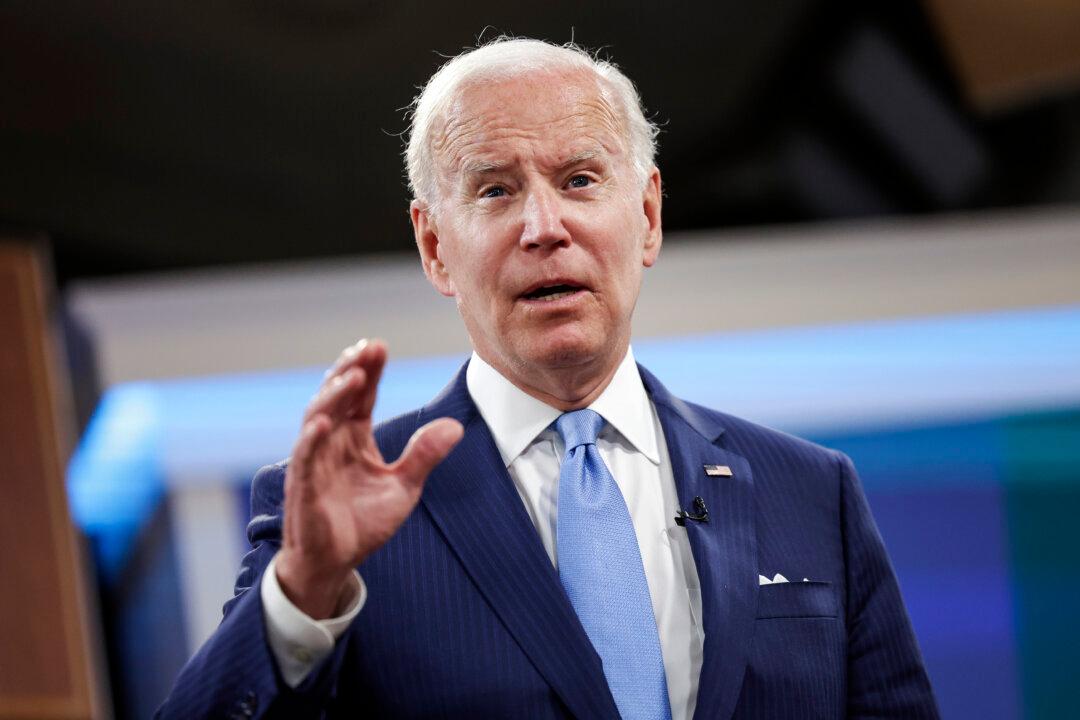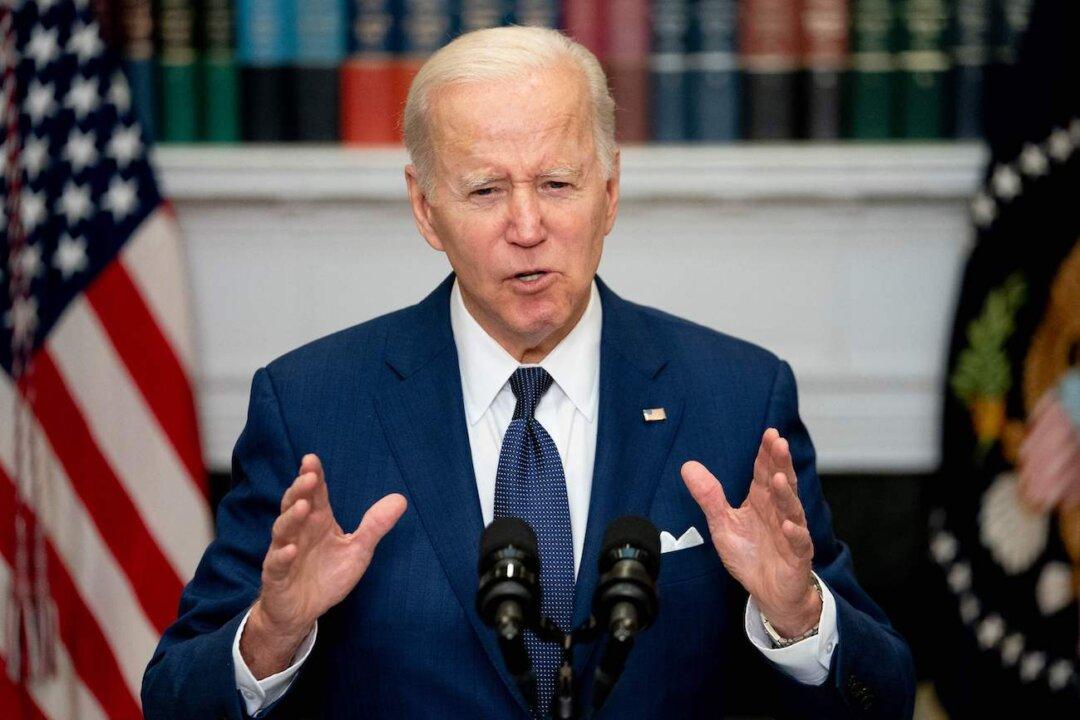President Joe Biden has called on the private sector supply chain to “step up” amid growing concerns around logistical bottlenecks and increasing inflation.
Biden’s comments in a speech on Oct. 13 came following announcements that the Port of Los Angeles will move to a 24/7 service—a step the Port of Long Beach made several weeks ago—in response to record backlogs on the wharves and dozens of cargo ships waiting to unload.




